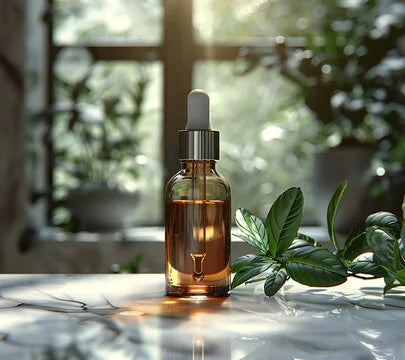
Alpha Arbutin
Alpha arbutin is a natural compound known for its powerful skin-brightening properties. It is primarily extracted from the bearberry plant and is also found in wheat bran and pears.
Alpha arbutin is used in skin-brightening products to treat hyperpigmentation and discoloration by inhibiting melanin production. In this article, we will discuss what alpha arbutin is, how it works, what it treats, and how to choose products containing it.
Alpha arbutin is a safer alternative to other skin brightening agents like hydroquinone. It provides a gentle yet effective way to reduce hyperpigmentation and promote an even skin tone. Being suitable for a wide range of skin types, including sensitive skin, alpha arbutin works well with other soothing ingredients like allantoin, enhancing its efficacy while minimizing potential irritation. This makes it an excellent choice for those seeking a comprehensive solution for brighter, healthier skin.








